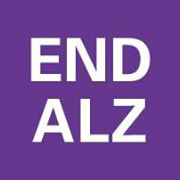Alzheimer’s Disease Facts and Figures
Prevalence
Almost two-thirds of American seniors living with Alzheimer’s are women. Of the 5 million people age 65 and older with Alzheimer’s in the United States, 3.2 million are women and 1.8 million are men.
The number of Americans with Alzheimer’s disease and other dementias will escalate rapidly in the coming years as the baby boom generation ages. By 2050, the number of people age 65 and older with Alzheimer’s disease may nearly triple, from 5 million to as many as 16 million, barring the development of medical breakthroughs to prevent, slow or stop the disease.
Mortality
More than 500,000 seniors die each year because they have Alzheimer’s. If Alzheimer’s was eliminated, half a million lives would be saved a year.
Alzheimer’s is officially the 6th leading cause of death in the United States and the 5th leading cause of death for those aged 65 and older. However, it may cause even more deaths than official sources recognize. It kills more than prostate cancer and breast cancer combined.
Deaths from Alzheimer’s increased 68 percent between 2000 and 2010, while deaths from other major diseases decreased. Alzheimer’s disease is the only cause of death among the top 10 in America that cannot be prevented, cured or even slowed
Impact on Caregivers
In 2013, 15.5 million family and friends provided 17.7 billion hours of unpaid care to those with Alzheimer’s and other dementias – care valued at $220.2 billion, which is nearly eight times the total revenue of McDonald’s in 2012.
All caregivers of people with Alzheimer’s – both women and men – face a devastating toll. Due to the physical and emotional burden of caregiving, Alzheimer’s and dementia caregivers had $9.3 billion in additional healthcare costs of their own in 2013. Nearly 60 percent of Alzheimer’s and dementia caregivers rate the emotional stress of caregiving as high or very high, and more than one-third report symptoms of depression.
Cost to the nation
Alzheimer’s disease is the most expensive condition in the nation. In 2014, the direct costs to American society of caring for those with Alzheimer’s will total an estimated $214 billion, including $150 billion in costs to Medicare and Medicaid. Despite these staggering figures, Alzheimer’s will cost an estimated $1.2 trillion (in today’s dollars) in 2050.
Nearly one in every five dollars spent by Medicare is on people with Alzheimer’s or another dementia. The average per-person Medicare spending for those with Alzheimer’s and other dementias is three times higher than for those without these conditions. The average per-person Medicaid spending for seniors with Alzheimer’s and other dementias is 19 times higher than the average per-person Medicaid spending for all other seniors.
The financial toll of Alzheimer’s on families rivals the costs to Medicaid. Total Medicaid spending for people with Alzheimer’s disease is $37 billion and out-of-pocket spending for individuals with Alzheimer’s and other dementias is estimated at $36 billion.
Women and Alzheimer’s
Women are at the epicenter of the Alzheimer’s crisis. A woman’s estimated lifetime risk of developing Alzheimer’s at age 65 is 1 in 6, compared with nearly 1 in 11 for a man. As real a concern as breast cancer is to women’s health, women in their 60s are about twice as likely to develop Alzheimer’s during the rest of their lives as they are to develop breast cancer.
Not only are women more likely to have Alzheimer’s, they are also more likely to be caregivers of those with Alzheimer’s. More than 3 in 5 unpaid Alzheimer’s caregivers are women – and there are 2.5 more women than men who provide 24-hour care for someone with Alzheimer’s.
Because of caregiving duties, women are likely to experience adverse consequences in the workplace. Nearly 19 percent of women Alzheimer’s caregivers had to quit work either to become a caregiver or because their caregiving duties became too burdensome.






